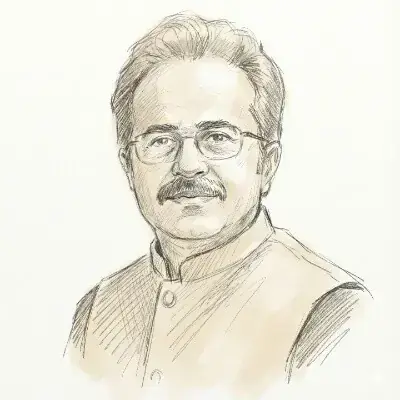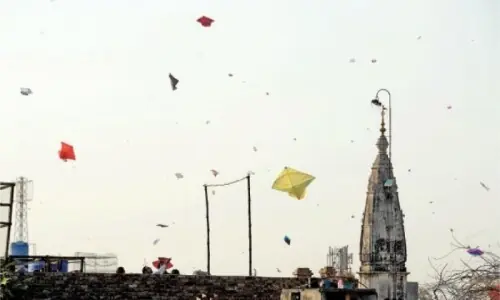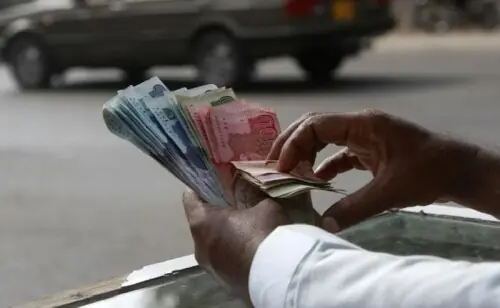ISLAMABAD: The order of the special court trying former president Pervez Musharraf for treason may end the retired general’s loneliness in the dock, but it will also delay the trial’s ‘logical conclusion’.
The three judges, both the prosecution and the defence as well as legal experts and observers agree that following the implication of former prime minister Shaukat Aziz, former and serving federal minister Zahid Hamid and former chief justice Abdul Hameed Dogar, the trial may not be concluded anytime soon and could drag on for months.
In its written order, the special court observed: “By joining them as co-accused, the conclusion of this trial might get delayed but where a charge of abetment is to be tried, the right thing to do is to order a joint trial along with the accused.”
Raja Rizwan Abbasi, an expert in criminal law, told Dawn that the case has been reset back to the investigation stage, where it stood in June of 2013, when the government formed a joint investigation team (JIT) to probe the treason charges.
He said that the JIT, for starters, would issue notices to the accused named by the court and record their statements.
If someone did not respond to the notice and did not appear before the JIT, the investigators could issue warrants for their arrest. “They may also be declared proclaimed offenders over continued absence,” Advocate Abbasi said.
After their statements are recorded and evidence against them collected, the prosecution would have to resubmit its complaint against Gen Musharraf and his co-accused.
All sides agree court orders will delay outcome of trial; investigations may start afresh
The special court would then indict Gen Musharraf, Shaukat Aziz, Zahid Hamid and Justice Dogar for high treason and all proceedings held in the special court thus far will be deemed scrapped.
This process may take months and after the indictment, the special court would be able to formally begin Gen Musharraf’s trial. This means the prosecution has to produce all its witnesses before the court, Abbasi said, adding that as such, no one could predict the time it would take for the trial to be completed.
A visibly relaxed Barrister Farogh Nasim, lead counsel for Gen Musharraf’s defence team, told Dawn that after this development, if the government still desired to continue with the trial, it would take years to complete it.
The case could not proceed without the presence of all the accused and it would be difficult for the prosecution to ensure their presence at each date of hearing.
The accused could then plead that they were not alone and other politicians were also involved in the decision-making process, adding that in such a case, the co-accused could demand a joint trial with more of their former colleagues.
“If the government is smart, they will drop [these charges] against my client,” he said.
Mohammad Akram Sheikh, the lead prosecutor, looked visibly sheepish following the verdict.
Talking to Dawn, he said that he had a foreboding that the court’s decision would not be altogether favourable for the prosecution.
“As a student of law, I think the trial will be delayed now,” adding that it was possible the ‘abettors’ in question may file an appeal against the order and obtain a stay order.
Justice Abdul Hameed Dogar sounded incredulous when Dawn first spoke to him. He seemed unsure and confirmed whether the court had explicitly named him in its order.
He said he would decide whether to challenge order after reviewing it.
“I have applied for a copy of the court order and will examine it before deciding on a course of action,” he said.
Sources close to the investigation team, however, put the ball squarely in the government’s court, saying that if they wanted, they could potentially expedite proceedings.
Insiders expressed confidence that if they wanted, they would implicate and frame charges against these co-accused within a fortnight.
It also remains to be seen whether the same JIT that probed the treason case against retired General Musharraf would be eployed to investigate his abettors or not.
In June of last year, the PML-N government put together a team of four FIA officers; Khalid Qureshi, Hussain Asghar, Maqsoodul Hassan and Mohammad Azam, to investigate the charges. All of them are now serving at different positions.
A source privy to the investigations said that if the government wanted to delay the outcome, it could constitute a fresh team to investigate the matter anew.
Published in Dawn, November 22th , 2014



































